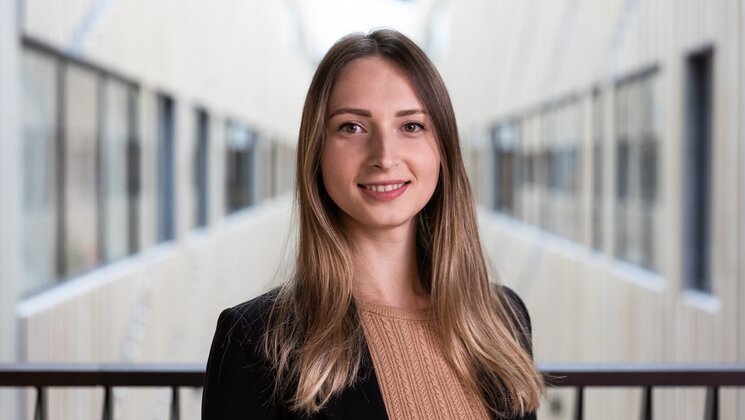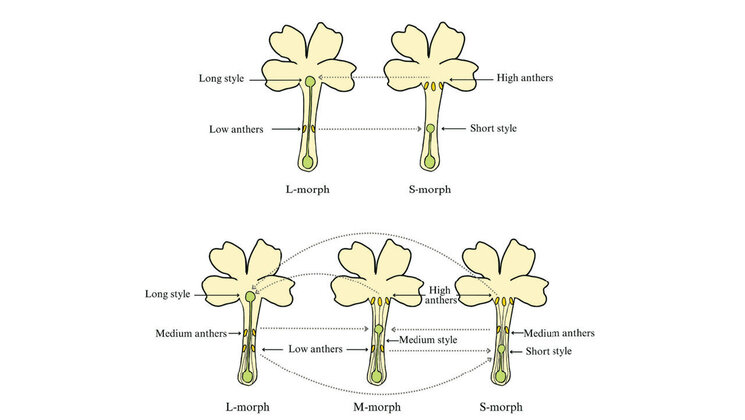-
Faculty of Arts and HumanitiesDean's Office, Faculty of Arts and HumanitiesJakobi 2, r 116-121 51005 Tartu linn, Tartu linn, Tartumaa EST0Institute of History and ArchaeologyJakobi 2 51005 Tartu linn, Tartu linn, Tartumaa EST0Institute of Estonian and General LinguisticsJakobi 2, IV korrus 51005 Tartu linn, Tartu linn, Tartumaa EST0Institute of Philosophy and SemioticsJakobi 2, III korrus, ruumid 302-337 51005 Tartu linn, Tartu linn, Tartumaa EST0Institute of Cultural ResearchÜlikooli 16 51003 Tartu linn, Tartu linn, Tartumaa EST0Institute of Foreign Languages and CulturesLossi 3 51003 Tartu linn, Tartu linn, Tartumaa EST0School of Theology and Religious StudiesÜlikooli 18 50090 Tartu linn, Tartu linn, Tartumaa EST0Viljandi Culture AcademyPosti 1 71004 Viljandi linn, Viljandimaa EST0Professors emeriti, Faculty of Arts and Humanities0Associate Professors emeriti, Faculty of Arts and Humanities0Faculty of Social SciencesDean's Office, Faculty of Social SciencesLossi 36 51003 Tartu linn, Tartu linn, Tartumaa EST0Institute of EducationJakobi 5 51005 Tartu linn, Tartu linn, Tartumaa EST0Johan Skytte Institute of Political StudiesLossi 36, ruum 301 51003 Tartu linn, Tartu linn, Tartumaa EST0School of Economics and Business AdministrationNarva mnt 18 51009 Tartu linn, Tartu linn, Tartumaa EST0Institute of PsychologyNäituse 2 50409 Tartu linn, Tartu linn, Tartumaa EST0School of LawNäituse 20 - 324 50409 Tartu linn, Tartu linn, Tartumaa EST0Institute of Social StudiesLossi 36 51003 Tartu linn, Tartu linn, Tartumaa EST0Narva CollegeRaekoja plats 2 20307 Narva linn, Ida-Virumaa EST0Pärnu CollegeRingi 35 80012 Pärnu linn, Pärnu linn, Pärnumaa EST0Professors emeriti, Faculty of Social Sciences0Associate Professors emeriti, Faculty of Social Sciences0Faculty of MedicineDean's Office, Faculty of MedicineRavila 19 50411 Tartu linn, Tartu linn, Tartumaa ESTInstitute of Biomedicine and Translational MedicineBiomeedikum, Ravila 19 50411 Tartu linn, Tartu linn, Tartumaa ESTInstitute of PharmacyNooruse 1 50411 Tartu linn, Tartu linn, Tartumaa ESTInstitute of DentistryL. Puusepa 1a 50406 Tartu linn, Tartu linn, Tartumaa ESTInstitute of Clinical MedicineL. Puusepa 8 50406 Tartu linn, Tartu linn, Tartumaa ESTInstitute of Family Medicine and Public HealthRavila 19 50411 Tartu linn, Tartu linn, Tartumaa ESTInstitute of Sport Sciences and PhysiotherapyUjula 4 51008 Tartu linn, Tartu linn, Tartumaa ESTProfessors emeriti, Faculty of Medicine0Associate Professors emeriti, Faculty of Medicine0Faculty of Science and TechnologyDean's Office, Faculty of Science and TechnologyVanemuise 46 - 208 51003 Tartu linn, Tartu linn, Tartumaa ESTInstitute of Computer ScienceNarva mnt 18 51009 Tartu linn, Tartu linn, Tartumaa ESTInstitute of GenomicsRiia 23b/2 51010 Tartu linn, Tartu linn, Tartumaa ESTEstonian Marine Institute0Institute of PhysicsInstitute of ChemistryRavila 14a 50411 Tartu linn, Tartu linn, Tartumaa EST0Institute of Mathematics and StatisticsNarva mnt 18 51009 Tartu linn, Tartu linn, Tartumaa EST0Institute of Molecular and Cell BiologyRiia 23, 23b - 134 51010 Tartu linn, Tartu linn, Tartumaa ESTTartu ObservatoryObservatooriumi 1 61602 Tõravere alevik, Nõo vald, Tartumaa EST0Institute of TechnologyNooruse 1 50411 Tartu linn, Tartu linn, Tartumaa ESTInstitute of Ecology and Earth SciencesJ. Liivi tn 2 50409 Tartu linn, Tartu linn, Tartumaa ESTProfessors emeriti, Faculty of Science and Technology0Associate Professors emeriti, Faculty of Science and Technology0Institute of BioengineeringArea of Academic SecretaryHuman Resources OfficeUppsala 6, Lossi 36 51003 Tartu linn, Tartu linn, Tartumaa EST0Area of Head of FinanceFinance Office0Area of Director of AdministrationInformation Technology Office0Administrative OfficeÜlikooli 17 (III korrus) 51005 Tartu linn, Tartu linn, Tartumaa EST0Estates Office0Marketing and Communication OfficeÜlikooli 18, ruumid 102, 104, 209, 210 50090 Tartu linn, Tartu linn, Tartumaa EST0Area of Vice Rector for DevelopmentCentre for Entrepreneurship and InnovationNarva mnt 18 51009 Tartu linn, Tartu linn, Tartumaa EST0University of Tartu Natural History Museum and Botanical GardenVanemuise 46 51003 Tartu linn, Tartu linn, Tartumaa EST0International Cooperation and Protocol Office0University of Tartu MuseumLossi 25 51003 Tartu linn, Tartu linn, Tartumaa EST0Area of RectorRector's Strategy OfficeInternal Audit OfficeArea of Vice Rector for Academic AffairsOffice of Academic Affairs0University of Tartu Youth AcademyUppsala 10 51003 Tartu linn, Tartu linn, Tartumaa EST0Student Union OfficeÜlikooli 18b 51005 Tartu linn, Tartu linn, Tartumaa EST0Centre for Learning and TeachingArea of Vice Rector for ResearchUniversity of Tartu LibraryW. Struve 1 50091 Tartu linn, Tartu linn, Tartumaa EST0Grant Office
Professor Kuldar Taveter gives an inaugural lecture on emotionally intelligent and human values-respecting artificial intelligence

On Tuesday, 17 December, at 16:15, Professor in Information Systems Kuldar Taveter will deliver his inaugural lecture, “Towards emotionally intelligent and smart information systems” in the assembly hall of the University of Tartu.
Emotional intelligence means the ability to empathise and to express and manage one’s emotions adequately. According to the latest theories, emotions help people achieve their goals rather than hinder them. Emotions are closely related to human values because respecting or violating the latter triggers a strong reaction in the human mind.
Researchers have shown that the success of a product or service is determined by whether it is emotionally acceptable to people. “Therefore, when creating a digital product or service, emotional requirements should be taken into account to help ensure that the user feels informed, stress-free, engaged, motivated and safe,” said Taveter.
As artificial intelligence is being increasingly applied to information systems, it is also important, according to the professor, to design them based on people’s expectations and build systems that consider people’s emotions and values when interacting with the user. “For example, any user is likely to be upset if artificial intelligence treats them unfairly, does not respect their privacy, or if it is unclear what values its advice is based on,” Taveter explained. It is particularly important to follow these principles in well-being and health information systems, as these concern users personally.
The Research Group of Human-Centric Information Systems, led by Kuldar Taveter, is developing methods to create information systems that meet users’ requirements and assumptions and are aligned with human values, such as autonomy, equal treatment, sense of belonging and achievement, as emphasised by social scientists. The researchers collect and analyse data from stakeholder groups on their expectations in terms of both the emotional intelligence of information systems and the values mentioned above. In his inaugural lecture, Professor Taveter will present examples of emotional expectations and human values from the fields of health, well-being, e-governance services and educational computer games, highlighting their importance in intelligent information systems.
Taveter received his doctoral degree in computer science from Tallinn University of Technology in 2004. From 1997 to 2005, he also worked as a research scientist in information technology at the VTT Technical Research Centre of Finland. After defending his doctoral thesis, he worked for three and a half years as a postdoctoral research fellow at the University of Melbourne, Australia. For the next ten years, Taveter was a professor in software engineering in the Department of Informatics, Tallinn University of Technology.
Taveter has been a Fulbright scholar at the University of South Carolina, USA, and a visiting professor at the University of Malaysia, Sarawak. Over the last decade, he has led research teams in four EU and two Estonian projects. He currently heads the Chair of Software Engineering at the Institute of Computer Science, University of Tartu, and is the programme director of Conversion Master in IT. On 1 August 2019, Taveter started work as an associate professor at the University of Tartu and on 1 May 2024, he became Professor in Information Systems.
The inaugural lecture aims to give new professors an opportunity to introduce themselves and their field and topic of research. At the end of the public lecture, the audience is welcome to ask questions. Everyone interested is welcome. The event can be watched live on UTTV.
Inaugural lecture of Kuldar Taveter, Professor in Information Systems
Read more similar news






